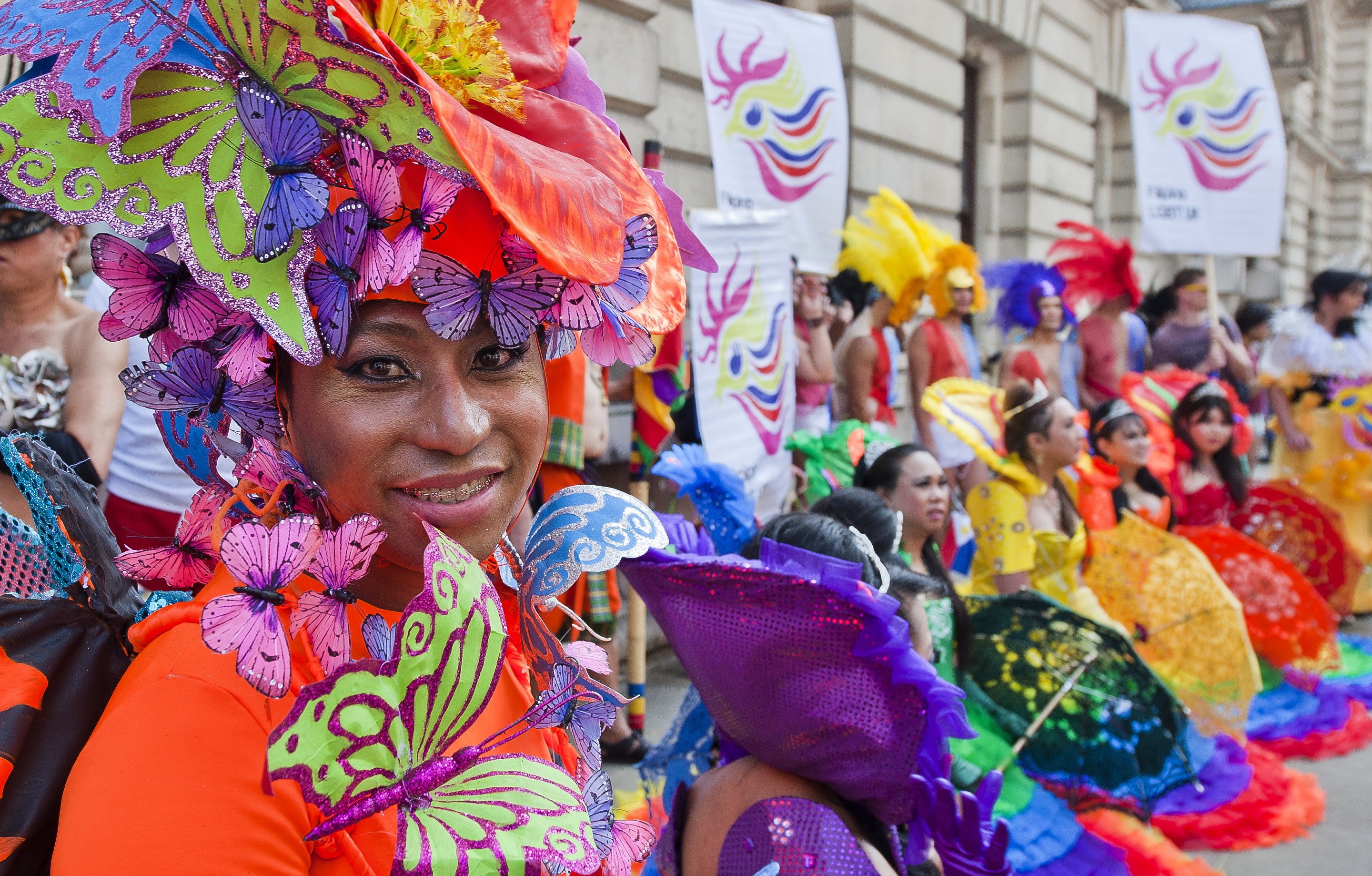Pride 2014: How did we go from shouting at the top of our lungs to merely asking for sympathy?
The problem is that I do not wish to be “tolerated”


Your support helps us to tell the story
From reproductive rights to climate change to Big Tech, The Independent is on the ground when the story is developing. Whether it's investigating the financials of Elon Musk's pro-Trump PAC or producing our latest documentary, 'The A Word', which shines a light on the American women fighting for reproductive rights, we know how important it is to parse out the facts from the messaging.
At such a critical moment in US history, we need reporters on the ground. Your donation allows us to keep sending journalists to speak to both sides of the story.
The Independent is trusted by Americans across the entire political spectrum. And unlike many other quality news outlets, we choose not to lock Americans out of our reporting and analysis with paywalls. We believe quality journalism should be available to everyone, paid for by those who can afford it.
Your support makes all the difference.The rainbow flag is flying high and looking pristine for the Pride festival in London this weekend. The glitter, rollerballs, fancy dress and camp music will be cranked up to the max, and an estimated 200,000 participants will be celebrating the hard won gains of the past year. Since lesbians and gay couples can now legally marry, we are officially equal to heterosexuals as far as the law goes. The divas, dildos and disco balls will be in full view as swathes of colour and sparkle merrily meander through central London.
Since the beginnings of the gay liberation movement in the mid-1970s there have been significant victories, and life is undoubtedly better for the majority of lesbians and gay men in the UK. But, despite the loud peel of wedding bells, anti-gay bigotry has not gone away.
When I came out in 1977 I was 15, and it was not an easy time. I had a massive crush on my best friend at school and it became obvious to all. I did not date boys, and was uninterested in the grotesque fashion of the 1970s that centred on agonising platform heels, flared Brutus jeans, and hippy chic. I was called a “dirty lezzer” and decided I may as well not deny it, because one day I would have to be open about it. I lost all my friends, including my crush, in one day.
Back then I did not know one other lesbian or gay man; had ingested the poisonous stereotypes of John Ingham in Are You Being Served, and Beryl Reid in The Killing of Sister George, and experienced fear when asked if I had a boyfriend. Two years earlier I had been desperate to watch The Naked Civil Servant, the story of out gay flamboyant Quentin Crisp. I was told by my babysitter, a lovely, homely woman, that it was “disgusting and depraved” and that I should go to bed.
Today we are awash with positive gay representation on TV and film, and in books and theatre. We have total legislative equality with heterosexuals, and can now marry in church, join the military, and are protected by law if discriminated against in the workplace and elsewhere. This mantra is recited back at me by straight and gay alike when I raise the issue of anti-gay bigotry. I am told that, unlike Russia and India, Uganda and Jamaica, we live in an extremely tolerate society and are now accepted as “normal” by straight society.

The problem is that I do not wish to be “tolerated”. We “tolerate” noisy neighbours and back pain. I want to be accepted and appreciated. The “normality” they refer to is heterosexual marriage and children. Where does that leave the single, non-conforming lesbian or gay man who does not want children, or those that would rather be at the picket line than the picket fence? How does the right to enter into an institution built on inequality and notions of ownership help those of us campaigning to end the oppression of all women?
In the early days of the Gay Liberation Front (GLF) campaigners sought to revolutionise all sexual relationships and free women and men from the tyranny of compulsory heterosexuality. They wanted to abolish marriage, not join it. In those heady days we would shout loudly that we were “Proud to be Gay”, and “Glad to be Gay”. One of my favourite badges was “Lesbianism: On Offer for all Women”.
Today we are wedded to the idea that same sex attraction is innate; that we are “born that way” and, ergo, cannot help the way we are. We ask for our rights based on the notion that no-one in their right mind would “choose” to be gay, and therefore we have no responsibility at all for our wonky chromosomes. How did we go from shouting proudly about our sexuality, to meekly asking for sympathy? And why do some of us claim that anti-gay bigotry has all but gone now that we can marry when the word ‘gay’ is routinely used as a pejorative in schools; queer bashing and other hate-crimes against us still prevails, and lesbians and gay men who seek asylum in the UK are routinely deported to countries where they face persecution and death.
It is time to dust down our placards and re-group as a gay and lesbian community, and recognise that.in some ways, we are as far from being liberated as we ever were. Legal equality matters, but what is even more important is that we change attitudes and minds, and not just the law.
STRAIGHT EXPECTATIONS What Does It Mean to be Gay Today? by Julie Bindel is published by Guardian Books
Join our commenting forum
Join thought-provoking conversations, follow other Independent readers and see their replies
Comments